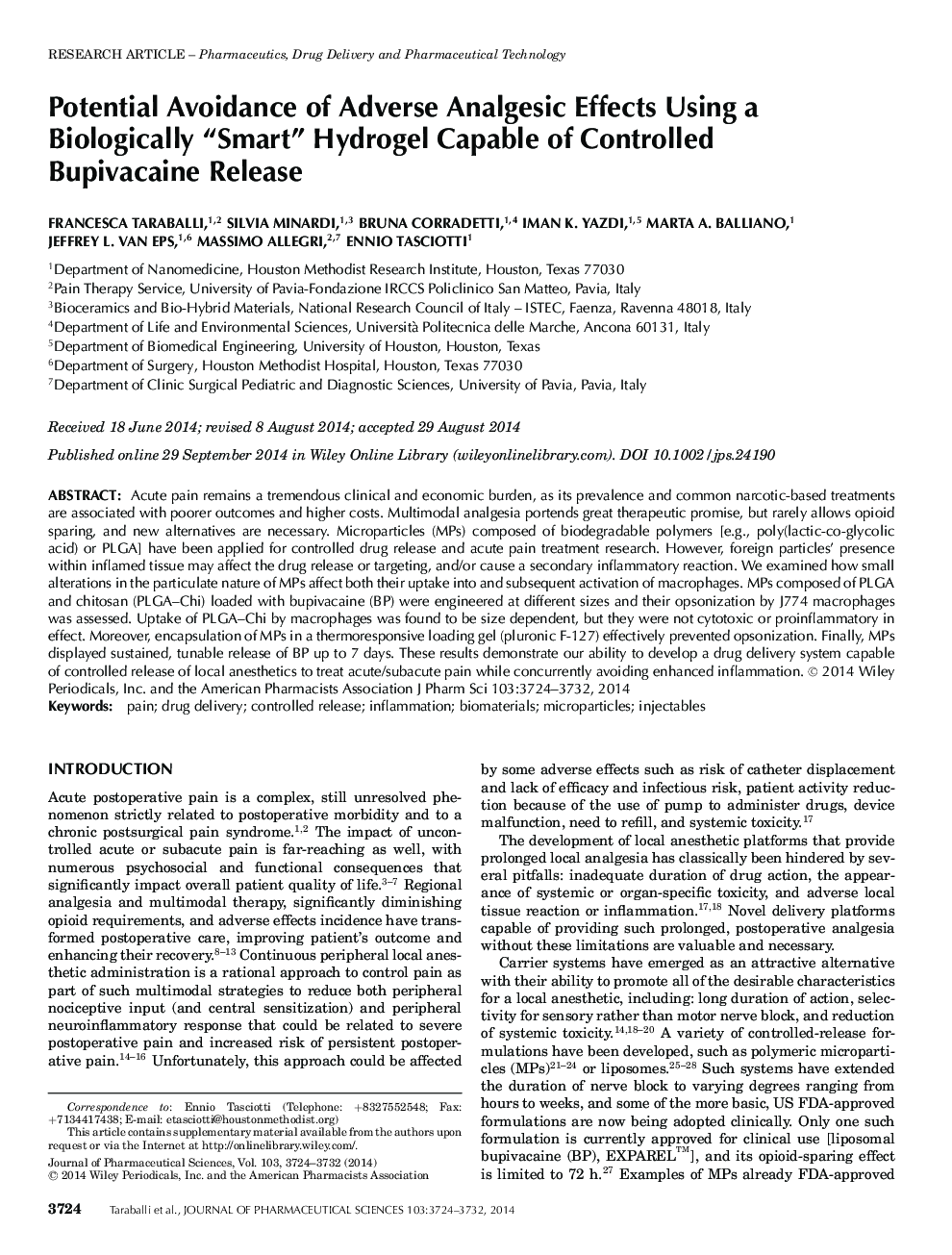| Article ID | Journal | Published Year | Pages | File Type |
|---|---|---|---|---|
| 10162286 | Journal of Pharmaceutical Sciences | 2014 | 9 Pages |
Abstract
Acute pain remains a tremendous clinical and economic burden, as its prevalence and common narcoticâbased treatments are associated with poorer outcomes and higher costs. Multimodal analgesia portends great therapeutic promise, but rarely allows opioid sparing, and new alternatives are necessary. Microparticles (MPs) composed of biodegradable polymers [e.g., poly(lacticâcoâglycolic acid) or PLGA] have been applied for controlled drug release and acute pain treatment research. However, foreign particles' presence within inflamed tissue may affect the drug release or targeting, and/or cause a secondary inflammatory reaction. We examined how small alterations in the particulate nature of MPs affect both their uptake into and subsequent activation of macrophages. MPs composed of PLGA and chitosan (PLGA-Chi) loaded with bupivacaine (BP) were engineered at different sizes and their opsonization by J774 macrophages was assessed. Uptake of PLGA-Chi by macrophages was found to be size dependent, but they were not cytotoxic or proinflammatory in effect. Moreover, encapsulation of MPs in a thermoresponsive loading gel (pluronic Fâ127) effectively prevented opsonization. Finally, MPs displayed sustained, tunable release of BP up to 7 days. These results demonstrate our ability to develop a drug delivery system capable of controlled release of local anesthetics to treat acute/subacute pain while concurrently avoiding enhanced inflammation. © 2014 Wiley Periodicals, Inc. and the American Pharmacists Association J Pharm Sci 103:3724-3732, 2014
Related Topics
Health Sciences
Pharmacology, Toxicology and Pharmaceutical Science
Drug Discovery
Authors
Francesca Taraballi, Silvia Minardi, Bruna Corradetti, Iman K Yazdi, Marta A Balliano, Jeffrey L Van Eps, Massimo Allegri, Ennio Tasciotti,
